
Last summer, the “Barbenheimer” phenomenon was a massive boon to the box office across the globe—and no doubt to Mattel’s doll sales, too (we’d also bet Google searches for J. Robert Oppenheimer were way, way up).
But what no one saw coming was that it was also a major boost for the Indigo Girls, the lesbian indie folk-rock duo made up of Amy Ray and Emily Saliers, who have been making music together for nearly 40 years.
Your dose of fabulosi-TEA
Subscribe to our newsletter for your front-row seat to all things entertainment with a sprinkle of everything else queer.
That’s because, tucked in among Barbie‘s best-selling soundtrack of sparkly new pop songs and Billie Eilish’s Oscar-winning “What Was I Made For?” was the Indigo Girls’ throwback breakthrough track, “Closer To Fine,” an introspective anthem released on their self-titled second anthem—which shows up a few times in the film.
So, how did a 34-year-old alternative hit by two queer women end up in one of the biggest blockbusters ever?
It’s simple: Writer-director Greta Gerwig was a massive fan, and she had been since she was a teen.
“The Indigo Girls were part of my growing up,” the filmmaker told the New York Times last year. “‘Closer to Fine’ is just one of those songs that meets you where you are, wherever you are. It has spoken to me throughout my life, like a novel you revisit.”
And though Gerwig doesn’t identify as part of the LGBTQ+ community herself, she’s getting at something true for many of us: no matter where we are or were on our journeys with our queerness, the Indigo Girls have been there to call us home.
Related*


EXCLUSIVE: Your first look at star-studded romantic musical ‘Glitter & Doom,’ set to the music of Indigo Girls
Queer romance. Indigo Girls songs. Appearances from icons like Peppermint and Tig Notaro. ‘Glitter & Doom’ has it all!
That’s a truth explored in the fantastic new documentary It’s Only Life After All from director Alexandria Bombach, which is now playing in select theaters after premiering at Sundance last year.
Featuring interviews with Ray, Saliers, their contemporaries and colleagues, and a number of fans, the doc recounts the trajectory of their groundbreaking careers and what made them into the celebrated artists and activists they are today.
Perhaps most affecting of all are the scenes dedicated to the profound effect Indigo Girls have had on fans—particularly their queer fans, a number of whom will claim “the Indigo Girls saved my life.” You can watch a few of these moving, emotional testimonies in the sneak-peek clip below:
“So, basically, the song “Ghost” came out and I had to learn it, then “Galileo” came out and I learn that. And then I was like, “Oh yeah, and I’m gay,” one fan recalls with a laugh.
“I came out in 1997 and their music helped me deal with that fact,” shared a male fan, speaking to an experience no doubt familiar with many of us out there.
Others (including a gay couple who say they got married to the Indigo Girls’ music) share stories of healing, of self-acceptance, of survival—all through the power of the their songs.
“Growing up in the ’90s as a queer kid, it was huge to have the Indigo Girls as role models,” adds another fan. “Just that inspiring message of not only your accountability to the community, but also to be who you are has really made a difference in my life.”
Related*


These 20 albums were essential in shaping LGBTQ+ culture
As pride heats up, we took upon the impossible task of rounding out the 20 most important albums to shape gay culture.
That’s just a sampling of the testimonials shared in It’s Only Life After All, but it speaks to the profound impact queer artists like Indigo Girls can have on our lives when they’re living—and singing—their truths. That, right there, is why representation matters, and why it’s important to stop and recognize occasions like Lesbian Visibility Week.
While Ray and Saliers find it hard to absorb the fact that their music has saved lives, they attribute that positive influence to a sense of “synchronicity” and community. “People feeling the same response to that song at the same time, and you just having this sense that you’re being held by something.”
Now, thanks to the long tail of Barbie‘s box office success, and the new documentary, hopefully more audiences—queer folks young and old—are discovering (or re-discovering) the power of the Indigo Girls, and feeling even just a little bit “Closer To Fine.”
Indigo Girls: It’s Only Life After All is now playing in select theaters across the country. You can find the nearest theater playing it right here.
Related*


Lesbian woman shares the epic love story of her gay grandmothers
We’re not crying, you’re crying.
Don't forget to share:















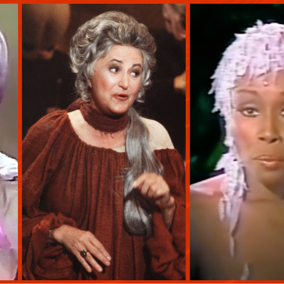
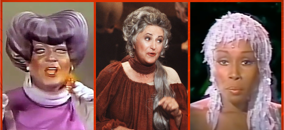




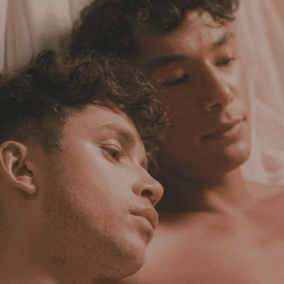
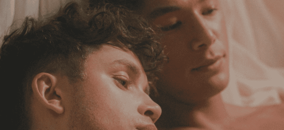
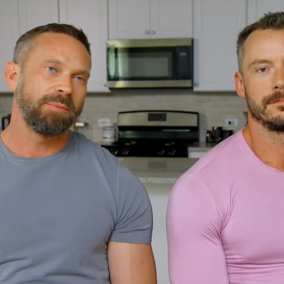

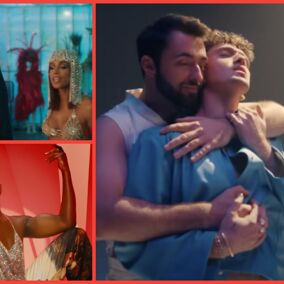
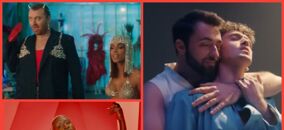
























abfab
Give me The Del Rubio Triplets any day!
Invader7
They were also on Pee Wees Playhouse , Night Court , Ellen , Full House, Married with Children & MTV !!!
abfab
And that show with dorothy and sophia, blanche and rose.